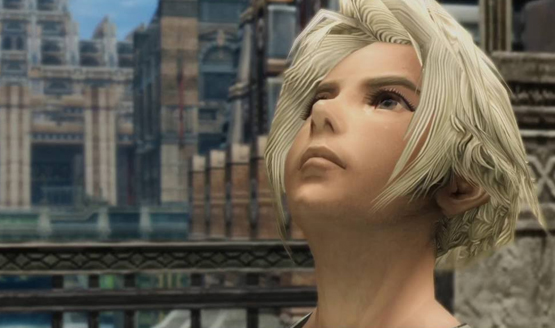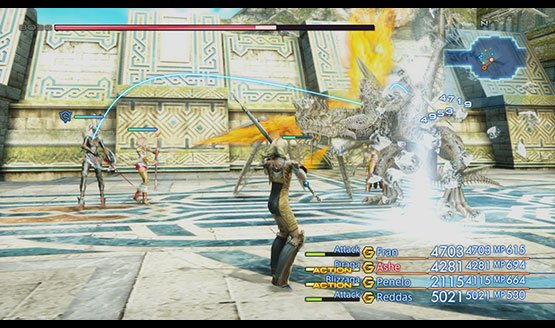
It’s been over 10 years since the original version of Final Fantasy XII was released. Back then, the game was a significant deviation from the long-standing Final Fantasy formula. The game featured a new and more open progressions system as well as a new real-time combat system that became the precedent for future combat systems in the franchise. It was also the most visually beautiful and impressive Final Fantasy game at the time. In spite of its successes though, FFXII wasn’t perfect. And a little over a year after its release, the International Zodiac Job System version of the game was released in Japan.
Final Fantasy XII: International Zodiac Job System, which ended up only being released in Japan, introduced some significant changes and additions in the games including the titular Zodiac Job System, which solved the original’s late-game problem of each character ending up pretty much the same. The new system expanded the original’s single License Board into a total of twelve, each representing a sign of the Zodiac as well as a specific job including White Mage, Dragoon, Machinist, Red Mage, Knight, Monk, Time Mage, Breaker, Archer, Black Mage, Samurai, and Thief.
The International Zodiac Job System version also added two New Game+ modes (a Strong and Weak mode), an unlockable Trial Mode, a fast-forward feature that doubles the game speed, a new Quickening system, and a slew of other changes. It was this version of the game that was then announced, almost 10 years later, to be getting a high-definition remaster called The Zodiac Age that would be released worldwide, ostensibly making the changes brought about by the Japan-only International Zodiac Job System version available and playable to audiences around the world.
Seeing and Hearing Is Believing
The visuals of The Zodiac Age have been greatly improved from the original, with some coming close to being acceptable for current generation standards. The textures and visual effects have all been improved including the game’s character and monster models and lighting, respectively. The environments are where the visual improvements are most noticeable though. Although, while most of the remaster’s visuals are impressive, flaws can be seen during the game’s cutscenes as facial features and other elements begin to lose detail when seen up close.
One can only do so much to improve a game’s original visuals without completely redoing them though, which is easier and part of the approach Square Enix took with the game’s audio. Not only have they improved the game’s voices but they’ve also re-recorded the game’s soundtrack and even added eight original tracks, all of which are incredibly impressive. For those who’d like to hear the soundtrack in its original form, that’s included as well and the two versions can be easily switched between through the game’s menu. Additionally, the game now supports 7.1-channel surround sound.
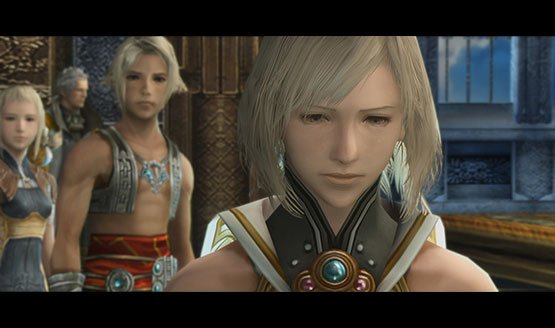
A Much Better Experience
As previously mentioned, The Zodiac Age is based on Final Fantasy XII’s The International Zodiac Job System version and as such has included the latter’s expanded job system. Unlike The International Zodiac Job System though, players will be able to select up to two jobs in The Zodiac Age by unlocking the “License Board Plus” node in a character’s primary License Board. Identical nodes unlocked in one board will also be unlocked in the other. This new feature allows players to build much more dynamic characters and figuratively adds to the amount of content the player can experience.
Allowing characters access to more than one job is also part of the Square Enix’s objective to make The Zodiac Age easier than its previous iterations, something that’s also clearly felt in the game’s battles. Regular battles and even boss battles are now noticeably less challenging than in the game’s previous versions. It’s now quite possible to activate Gambits on all the active characters and use that with the game’s fast forward feature to quickly run through an area whilst hastily defeating all the enemies on the way without any effort.
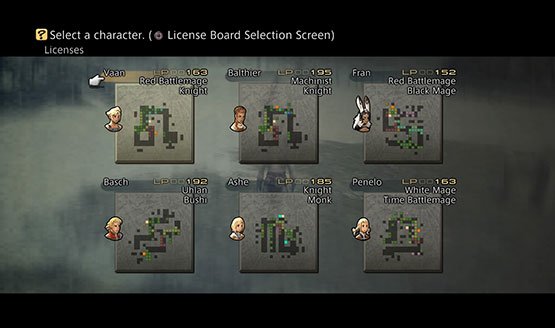
Square Enix has also improved the aforementioned fast-forward feature, as it now has both double and quadruple speed options and characters are now easier to control while it’s active. Other quality of life improvements or additions also include faster loading times, a new transparent overlay map which makes it even easier to traverse the game’s maps, an auto-save feature which is incredibly helpful for times when a save point isn’t readily available or when a player forgets to save, and map hints in the main map screen to help players remember their current objective.
Those who’ve finished the main story can either play the aforementioned Strong variant of the New Game+ mode in which characters start at level 90 or they take their saved characters with their equipment and abilities into Trial Mode, a 100-stage survival mode where players can really test the capabilities of their characters. Trial Mode features a wide range of enemies of increasing difficulty including a fight against all five Judge Magisters. Those who then beat the Trial Mode will have access to the more difficult Weak variant of New Game+ wherein characters star at level 1 but never level up.
Final Fantasy XII: The Zodiac Age is an excellent example of a holistic approach to producing a well-made remaster. Not only does it feature the usual remaster fare of significantly improved visuals up to their maximum capabilities but it also includes significant and positive improvements and additions to its audio and gameplay that take into consideration both its past strengths and weakness, the resources of the current times, and both its past and current potential audience. Final Fantasy XII: The Zodiac Age is undoubtedly a remaster worth playing for both newcomers and fans of the original.
Review code for Final Fantasy XII: The Zodiac Age provided by the publisher. Reviewed on PS4. For more information on scoring, please read our Review Policy here.
-
Great story and characters
-
Impressively improved visuals
-
Excellent audio and soundtrack
-
Significantly improved gameplay
-
Visuals lose detail during close-up cutscenes
Final Fantasy XII: The Zodiac Age info dump
-
Final Fantasy XII: The Zodiac Age - EYNTK
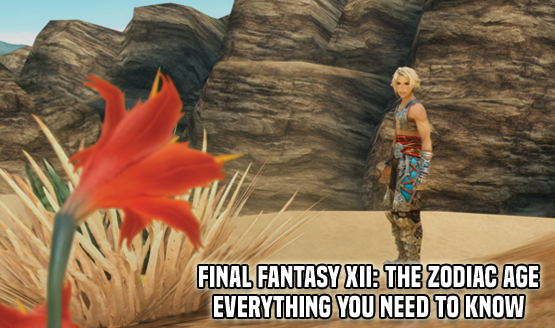
The Zodiac Age is dawning, and in anticipation of FFXII's re-release, we've compiled everything you need to know about Square's PS4 remaster.
-
What is Final Fantasy XII: The Zodiac Age?
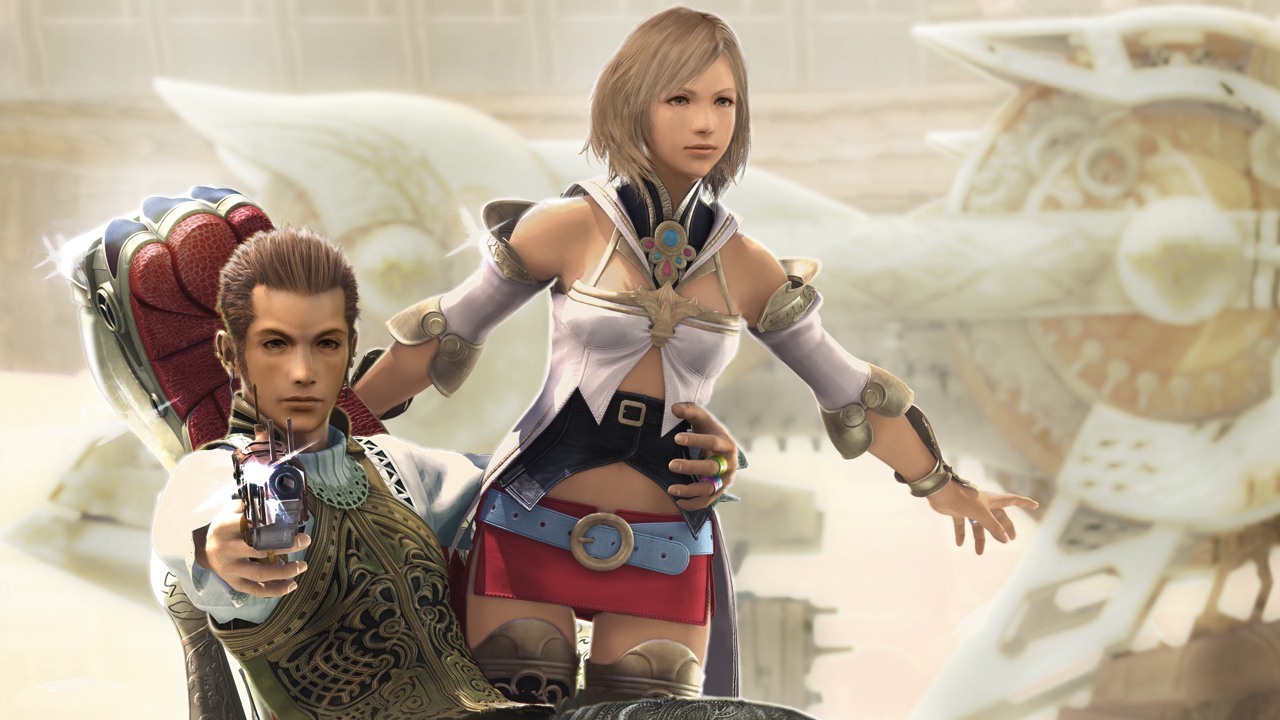
It's the PS2 classic you remember, only with overhauled graphics and the Zodiac Job System. As we alluded to before, there are a handful of new features to be enjoyed in FFXII HD, which we'll get to a little later.
For now, here's an overview:
"FINAL FANTASY XII THE ZODIAC AGE improves upon the 2006 classic FINAL FANTASY XII, now more beautiful and easier to play than ever. The high-definition remaster introduces several modern advancements, including reconstructed battle design and a revamped job system. With newly implemented trophies and share functions, as well as stark visual and sound improvements in true HD for the first time, players both returning and new to the game will experience a grand adventure that spans the world of Ivalice in an entirely fresh and improved way."
-
What’s the Story?
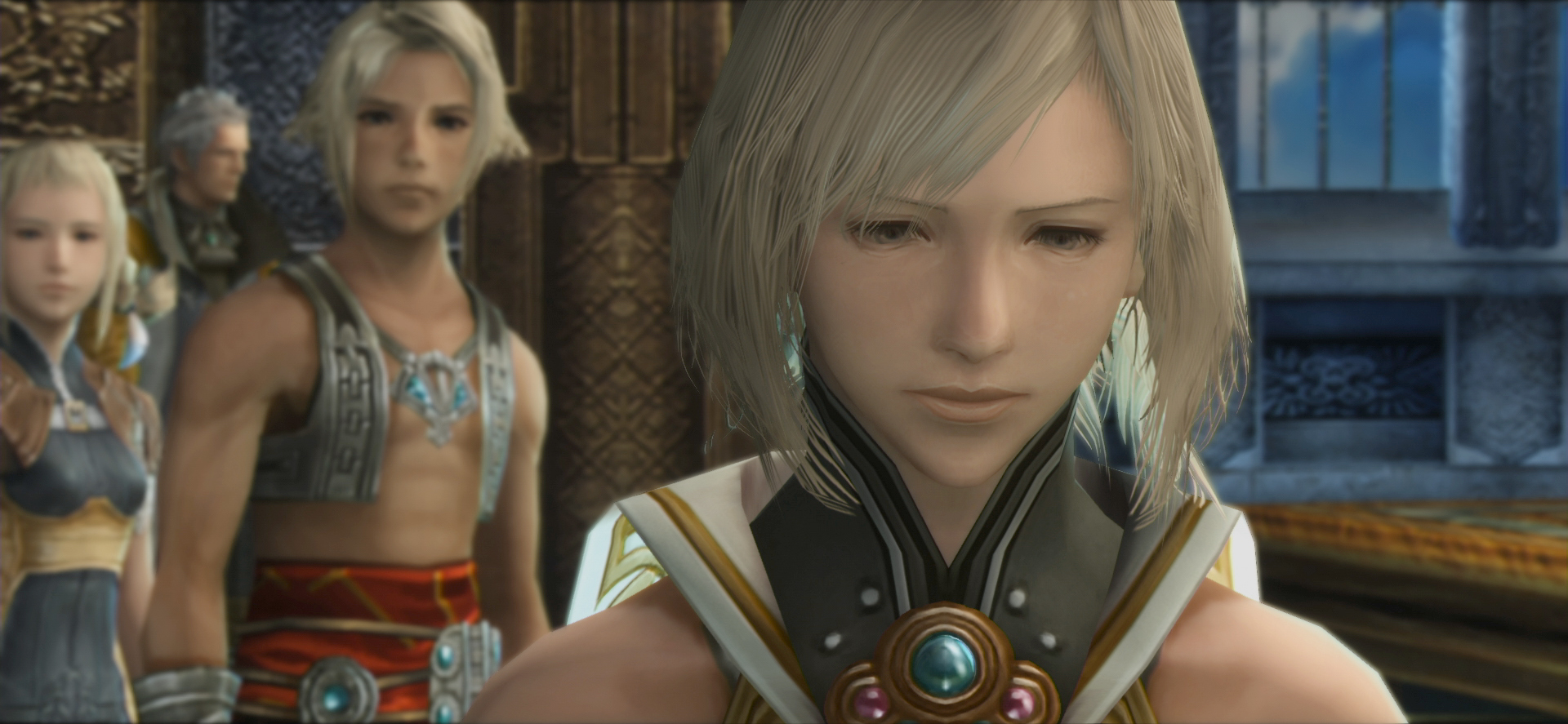
Final Fantasy XII largely takes place in the war torn kingdom of Dalmasca, where players assume the role of the orphaned Vaan. Plus, as this is Final Fantasy, expect airships, impossible hairstyles, and an empire at war.
"Enter an era of war within the world of Ivalice. The small kingdom of Dalmasca, conquered by the Archadian Empire, is left in ruin and uncertainty. Princess Ashe, the one and only heir to the throne, devotes herself to the resistance to liberate her country. Vaan, a young man who lost his family in the war, dreams of flying freely in the skies. In a fight for freedom and fallen royalty, join these unlikely allies and their companions as they embark on a heroic adventure to free their homeland."
-
How Does It Play?
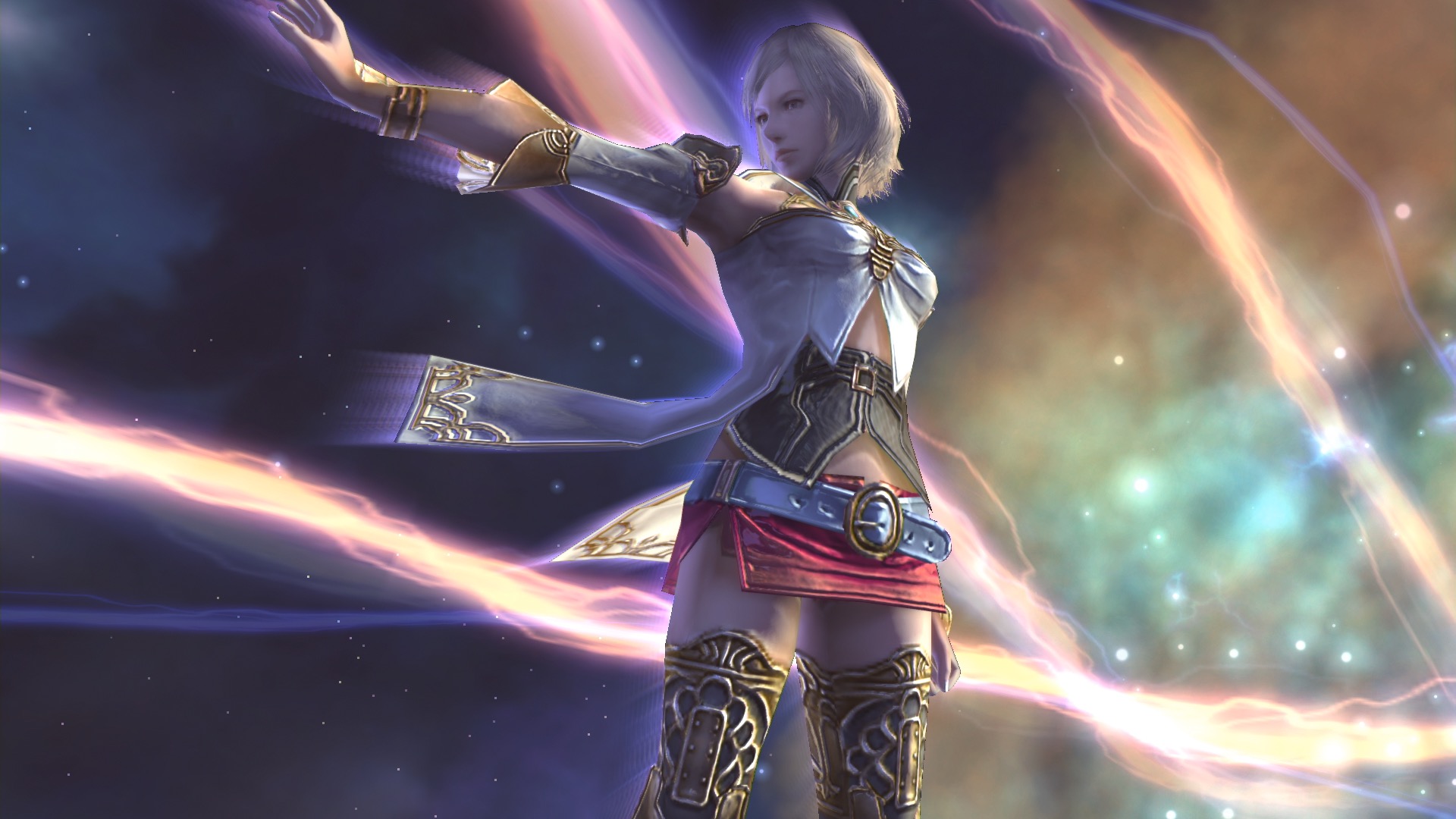
Exactly as you remember, providing you played the International Zodiac Job System version at release.
Given this particular version only launched for those in Japan in 2007, chances are you haven't, but don't fret, our own Heath Hindman compiled an overview of those changes in a previous post.
-
A Long Time Coming
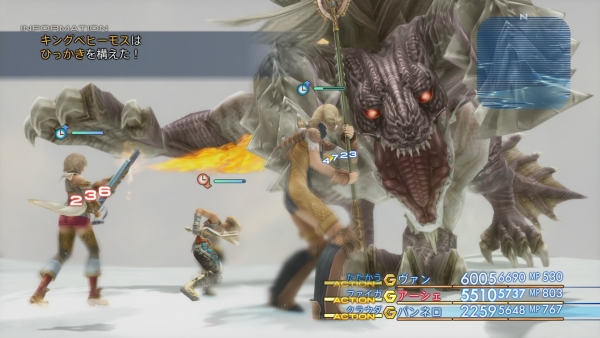
Soon after the launch of Final Fantasy X/X-2 HD, speculation was rife that Square was already toiling away on a HD remaster of FFXII — speculation that the company strongly denied until making things official in June 0f 2016.
-
Why Did Square Choose to Remaster XII?
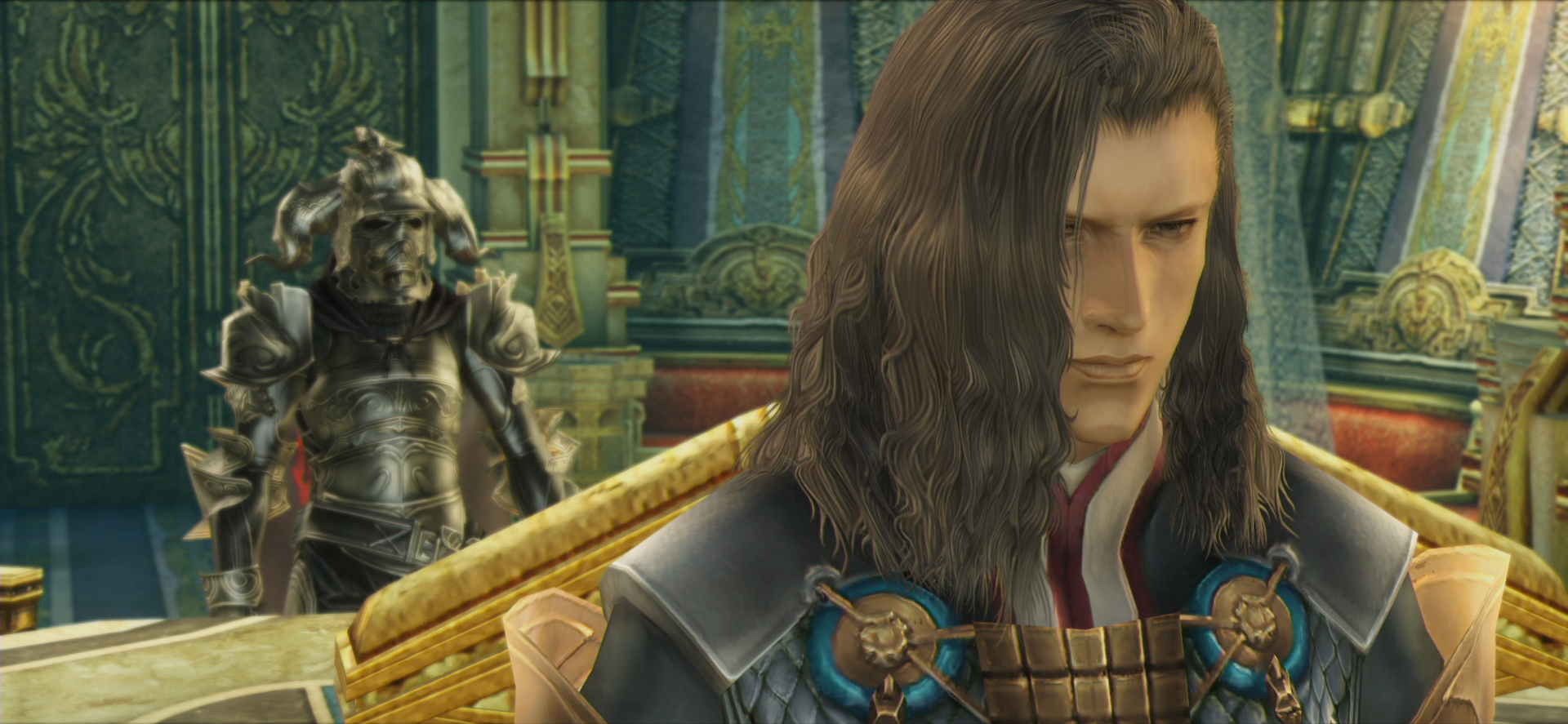
Several reasons, according to Producer Hiroaki Kato. Chief among them is the success of Final Fantasy X/X-2 HD, while Kato-san also drew attention to the original staffers on board to help bring the 2006 classic to PS4.
"Several reasons. But since we worked on the original XII, we have a lot of memories associated with that title. And when Final Fantasy X came out as an HD remaster on the PS4 and became a successful title, we thought that maybe we should bring this one back as well. So we brought together the core members of the original development team.
"And then another reason was that when we created the original XII, we actually made it relatively high spec. So we were always thinking that we wanted to create an HD version of it sometime in the future. But if we did that, I wanted to have the original members work on it as well. It was difficult trying to find a time when everyone could work together again, just because everyone was on different projects."
-
$49.99 Price Point
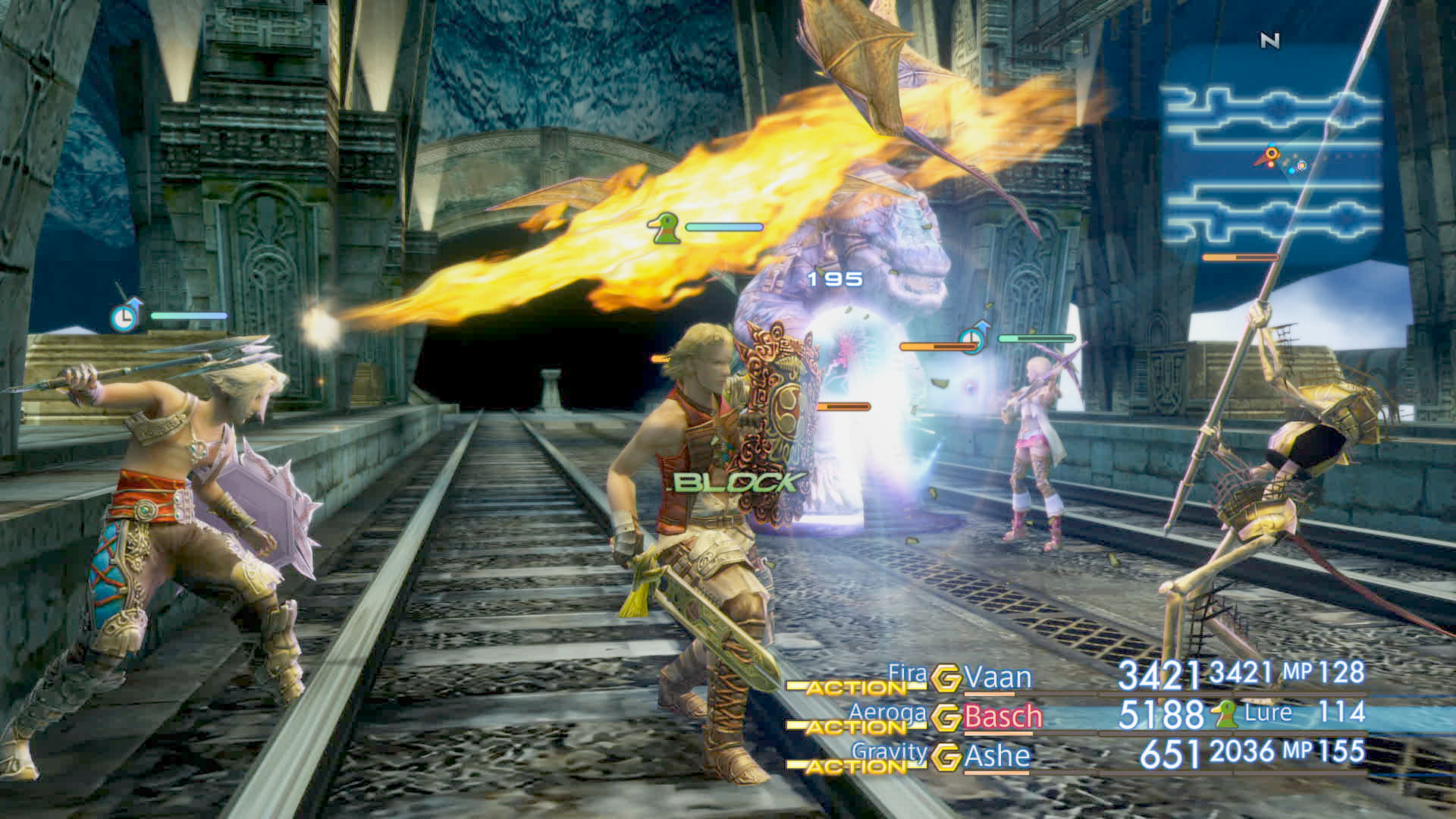
Priced at $49.99, Final Fantasy XII: The Zodiac Age will launch first in North America and Europe on July 11, before making its way east to Japan in time for July 13.
-
New Features Include Auto-Save, Faster Load Times
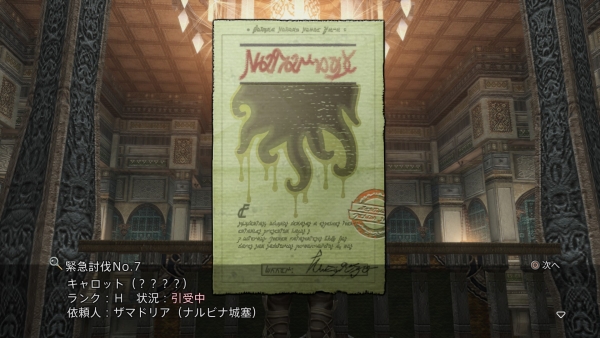
In its journey to PS4, Final Fantasy XII has accrued a ton of new features, which are designed to bring the RPG classic closer in line with modern-day expectations.
They include:
- The Zodiac Job System – Improved character leveling system that now caters to the player’s preference
- Trial Mode – Take on monsters and enemies in up to 100 consecutive battles
- Speed Mode
- Latest-generation HD graphical capabilities, including characters and movie scenes fully remastered in high definition.
- True 7.1 surround sound, including high definition voicing and newly recorded background music utilizing the current generation of sound production.
- Option to switch between the original and the newly remastered soundtrack.
- Modern advancements including PlayStation 4 trophy support and share functionalities, auto-save and shortened loading times
- An endless amount of gameplay and adventure including Hunts, Battles, and mini-games
-
Trial Mode
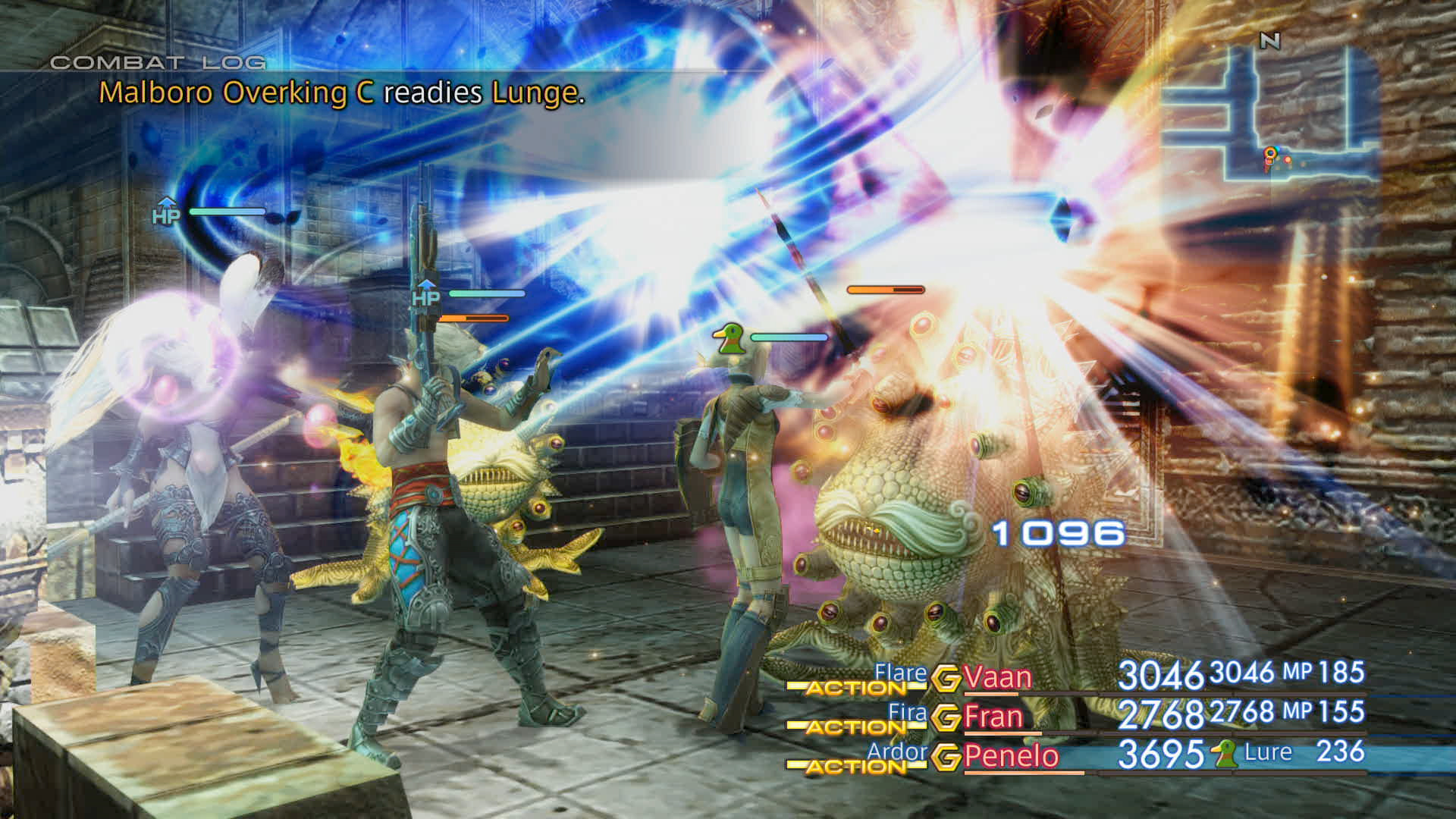
Consider yourself a master of FFXII's Gambit system? Then the all-new Trial Mode should be a breeze...right?
Wrong. Square's new addition tasks players with fighting through 100 battle scenarios, each increasing in complexity and difficulty.
"It’s specifically designed so that it’s impossible to go through all 100 stages on the same gambit settings. You’ll have to go in and tweak your gambits. This is something for users looking to get the most out of the gambit system."
"It’s specifically designed so that it’s impossible to go through all 100 stages on the same gambit settings," said Kato, referring to the system where you set up routines for your characters to use rather than giving them direct orders. "You’ll have to go in and tweak your gambits. This is something for users looking to get the most out of the gambit system."
-
High Speed Mode
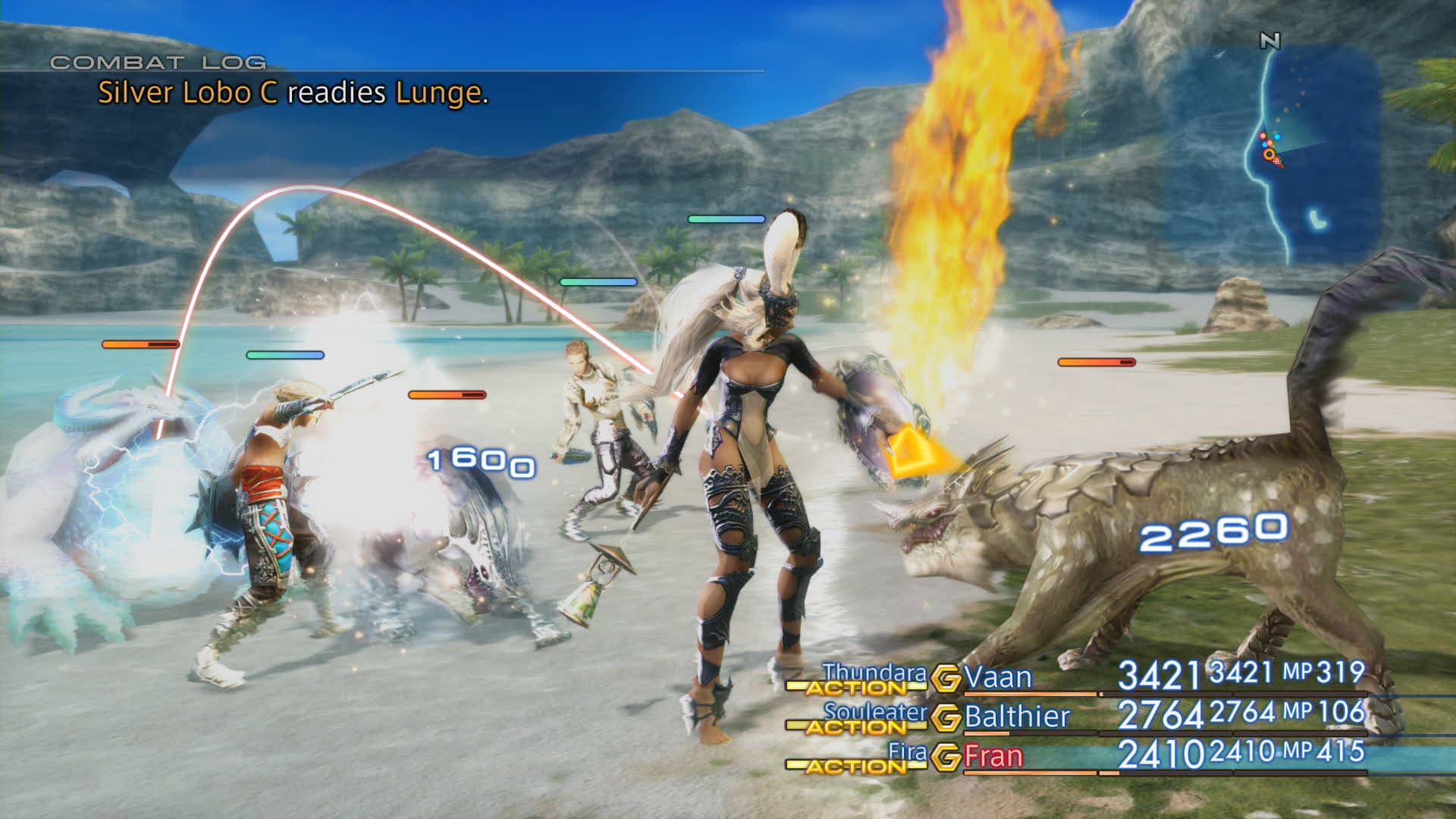
Navigating Ivalice while on foot can be a daunting task — especially when Vaan struggles to muster anything more than a light sprint.
Thankfully, The Zodiac Age brings about the introduction of High Speed Mode, which essentially doubles your speed at the push of a button. Pretty neat, right?
-
Game Balance
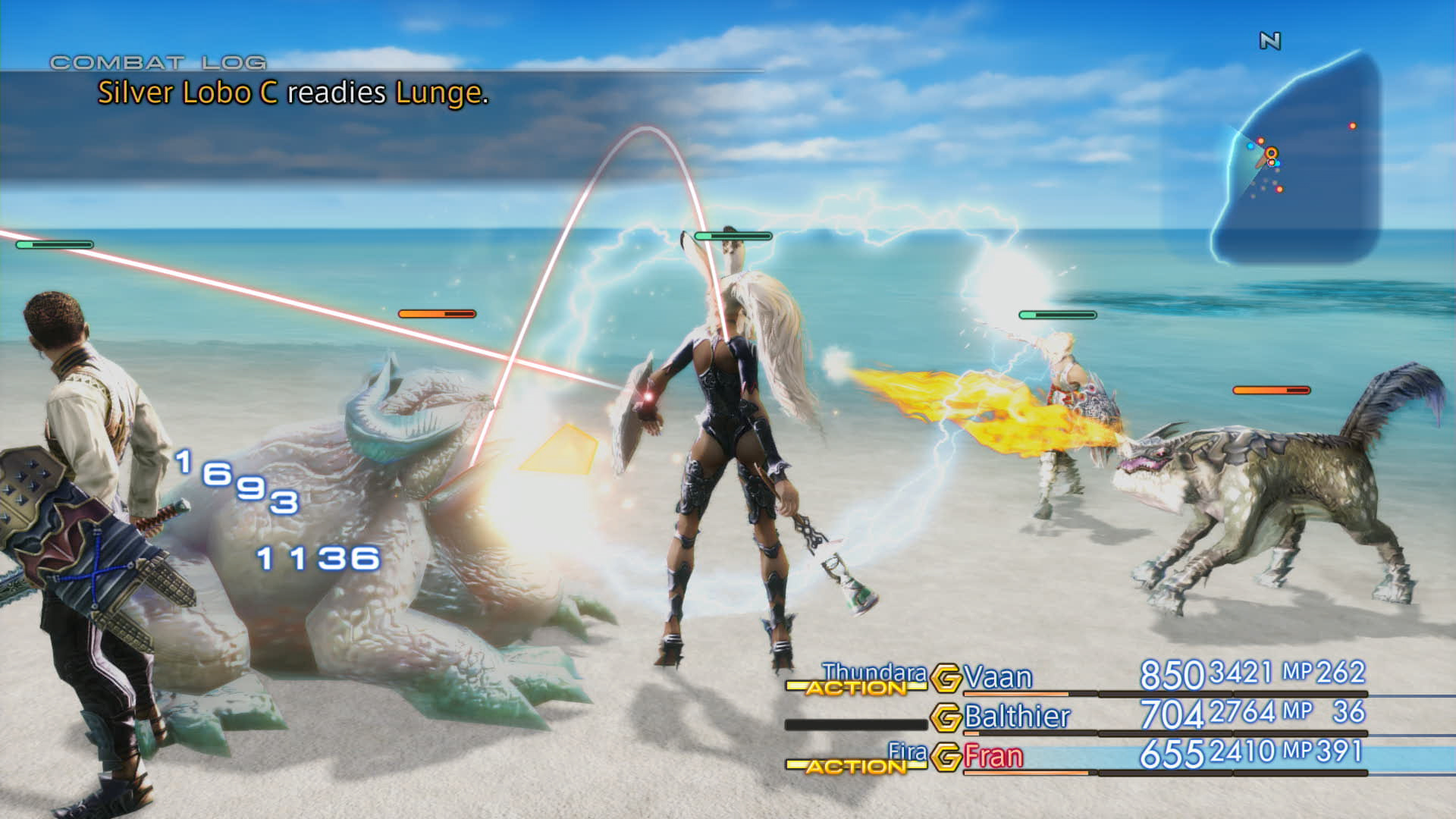
FFXII was always considered to be a difficult entry in Square's prestigious series. But as Producer Hiroaki Kato told Polygon, it took time for players to adjust to the real-time battle system.
"One of the biggest challenges we faced in Final Fantasy 12 was to ditch the classic random encounter system that we had. In other games, you would go into battle suddenly, whereas in Final Fantasy 12 you saw enemies as you moved through the field. It’s a real-time battle system. It was a big departure from the classic system.
"We actually got help from Hiroyuki Ito, who worked on the game design for previous Final Fantasy titles. We overhauled the game balance so that it would be easier for players — closer to the feel of a classic Final Fantasy title."
-
Early Buzz
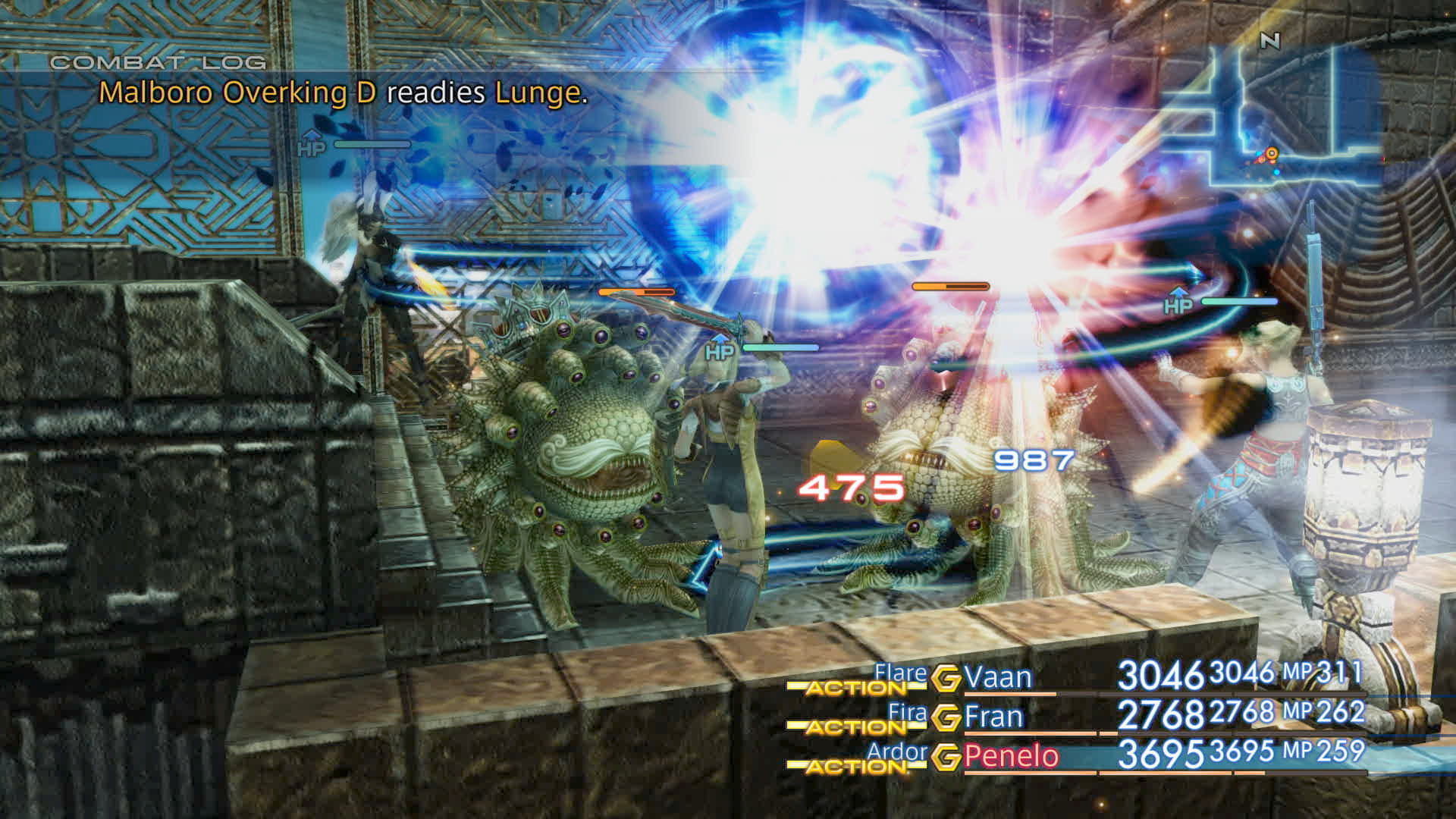
Though the review embargo isn't set to lift until Monday, July 10, early buzz for Square's latest remaster is certainly positive.
-
Square Enix Talks Remakes and Remasters
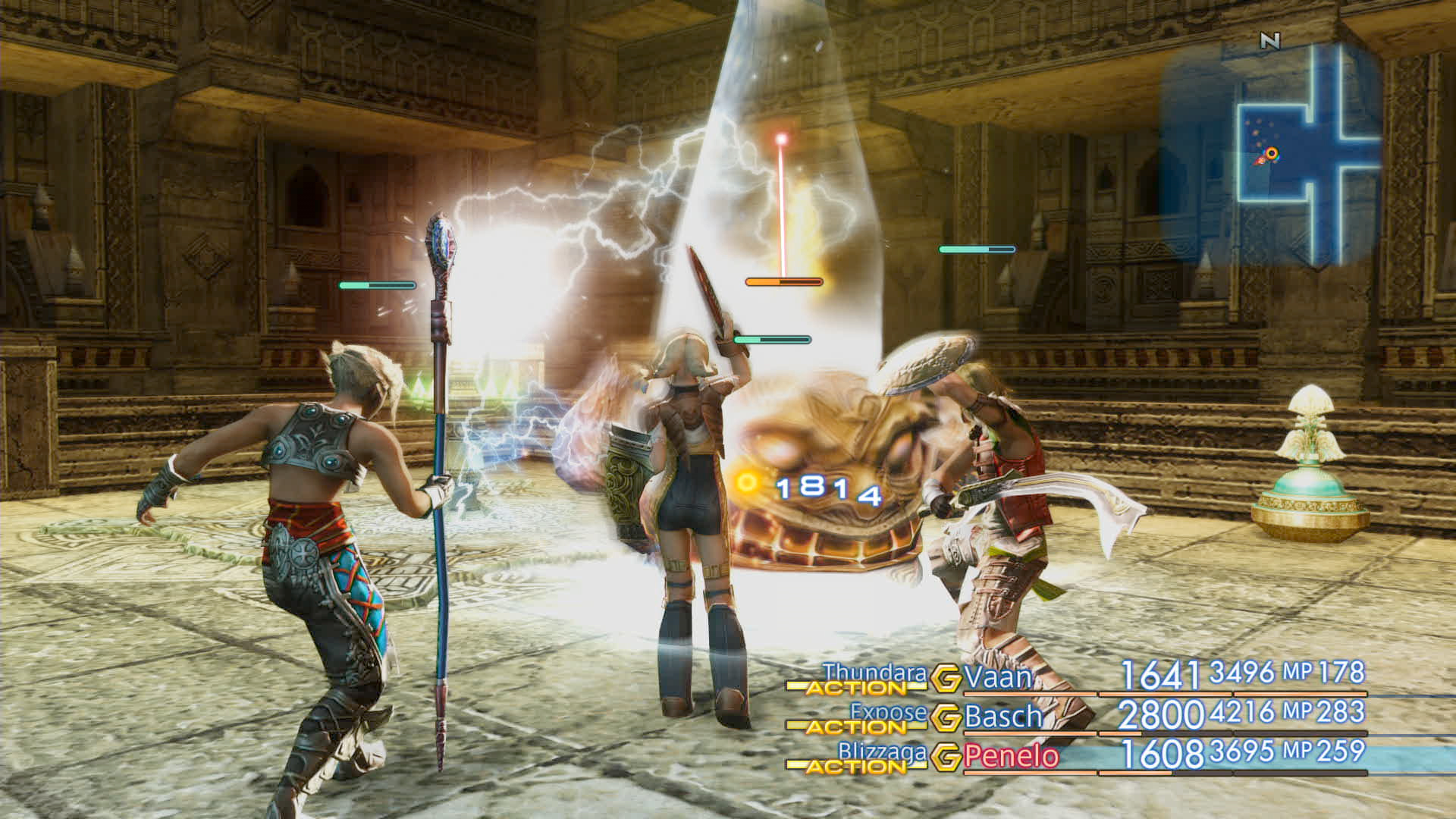
Whereas The Zodiac Age is a HD remaster of the original, Square Producer Hiroaki Kato has conceded that any Final Fantasy released before PlayStation 2 would likely require a total remake, similar to FFVII.
"The PlayStation 2 would probably be the only hardware that we could really remaster from. Anything before that probably wouldn’t be a remaster anymore, but a remix because of all the polygon models and sprites, like Final Fantasy VII. That’s probably why they’re doing a remake, instead of like a remaster."
-
No Love for Vita
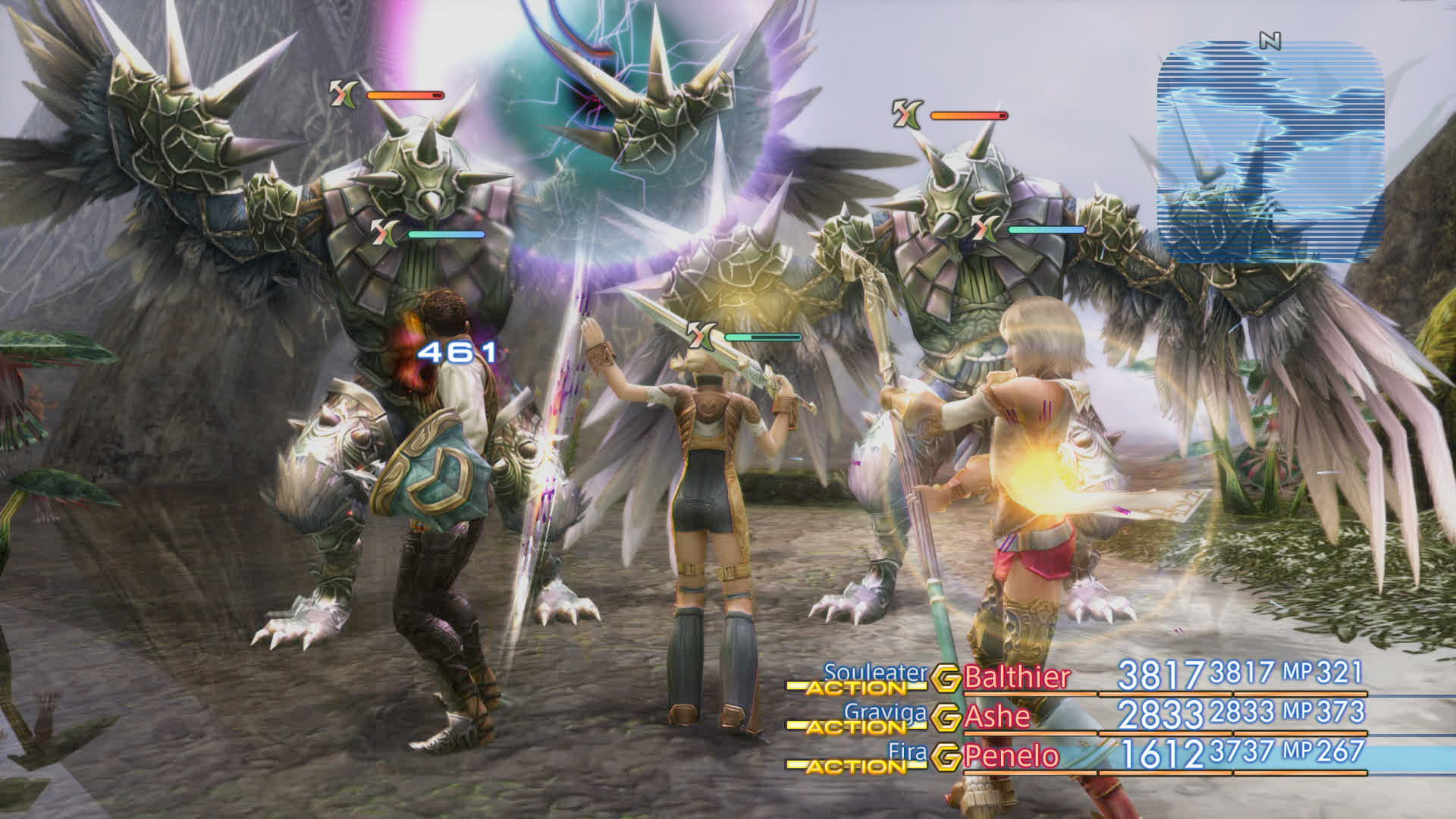
Alas, those hoping to journey through the kingdom of Ivalice while on the go will be disappointed to learn that Final Fantasy XII HD will skip PlayStation Vita altogether. But don't worry, there's always Spira!
-
Story Trailer
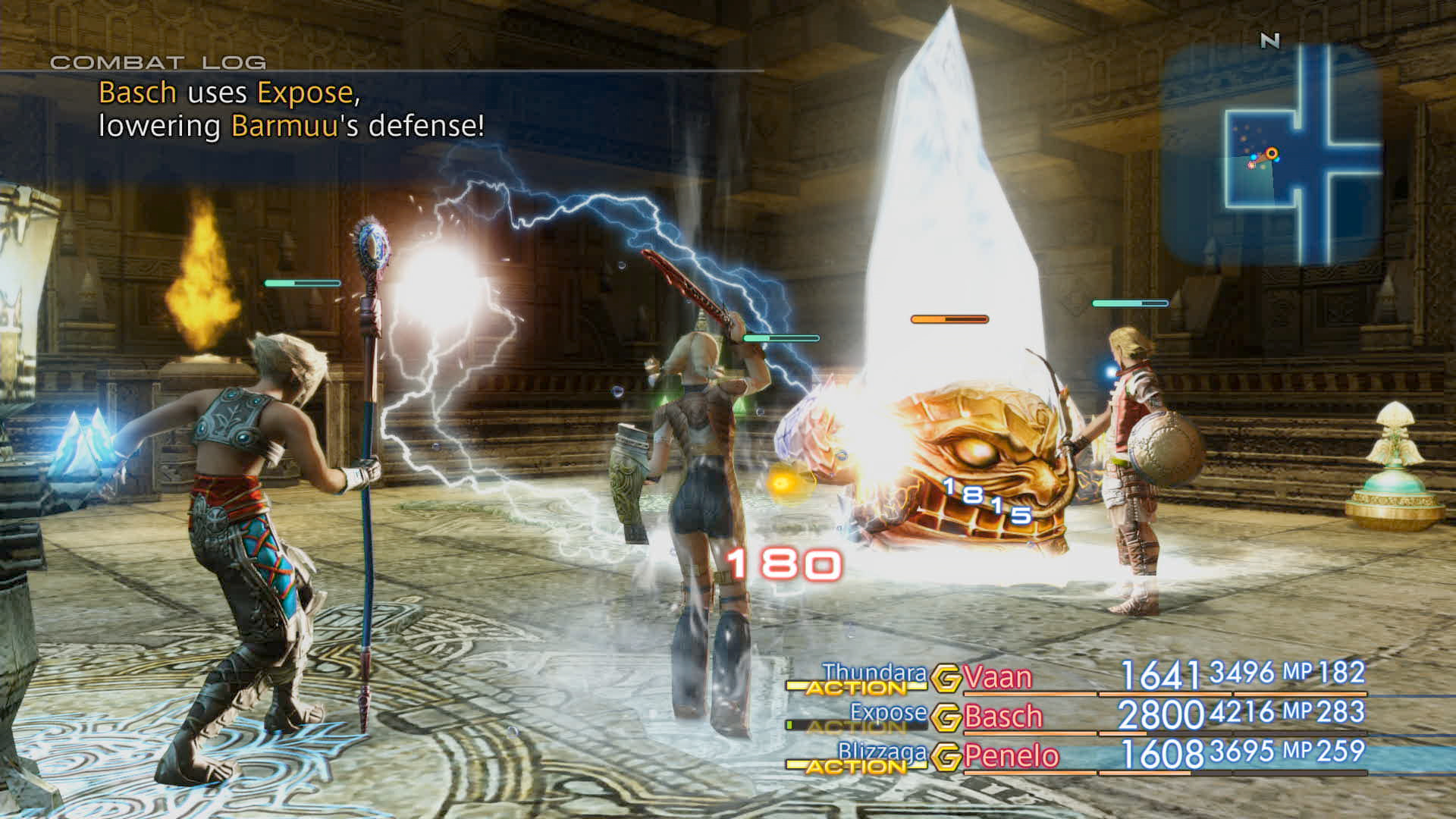
From the Archadian Empire to Ivalice, FFXII HD is packing a vast, colorful world under the hood, and you'll be able to get a brief overview of what to expect right here.
-
The Gambit System
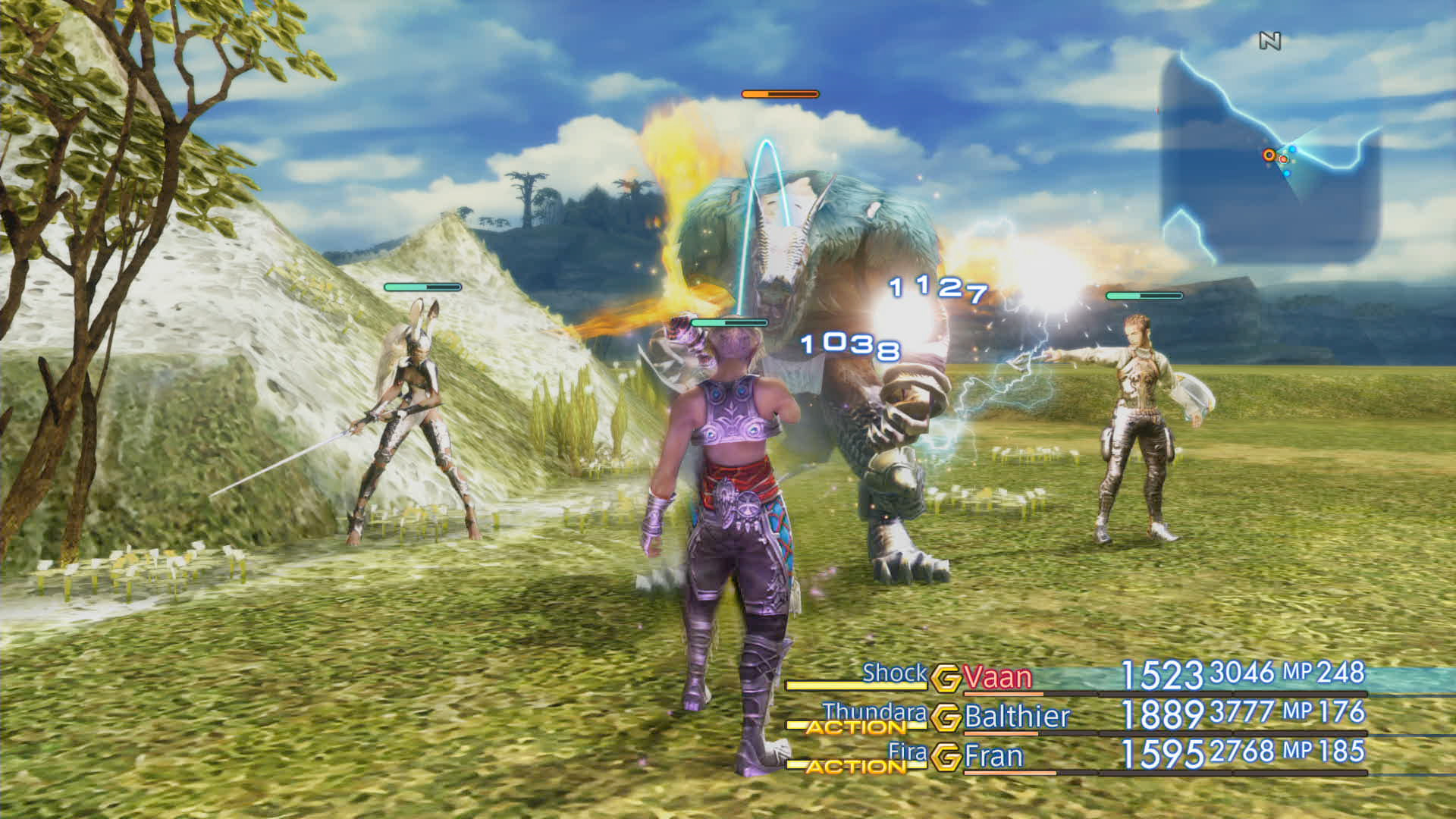
Every Final Fantasy title has a certain je ne sais quoi, and for XII, it's the Gambit System.
It's a system that utilizes fully customizable AI Gambits to lend players the ability to adapt to "any situation" in the heat of battle. There are 12 unique jobs in total, and in this trailer, you'll get a sense of how to use the Gambit System to your advantage.
-
Rated 'T' for Teen
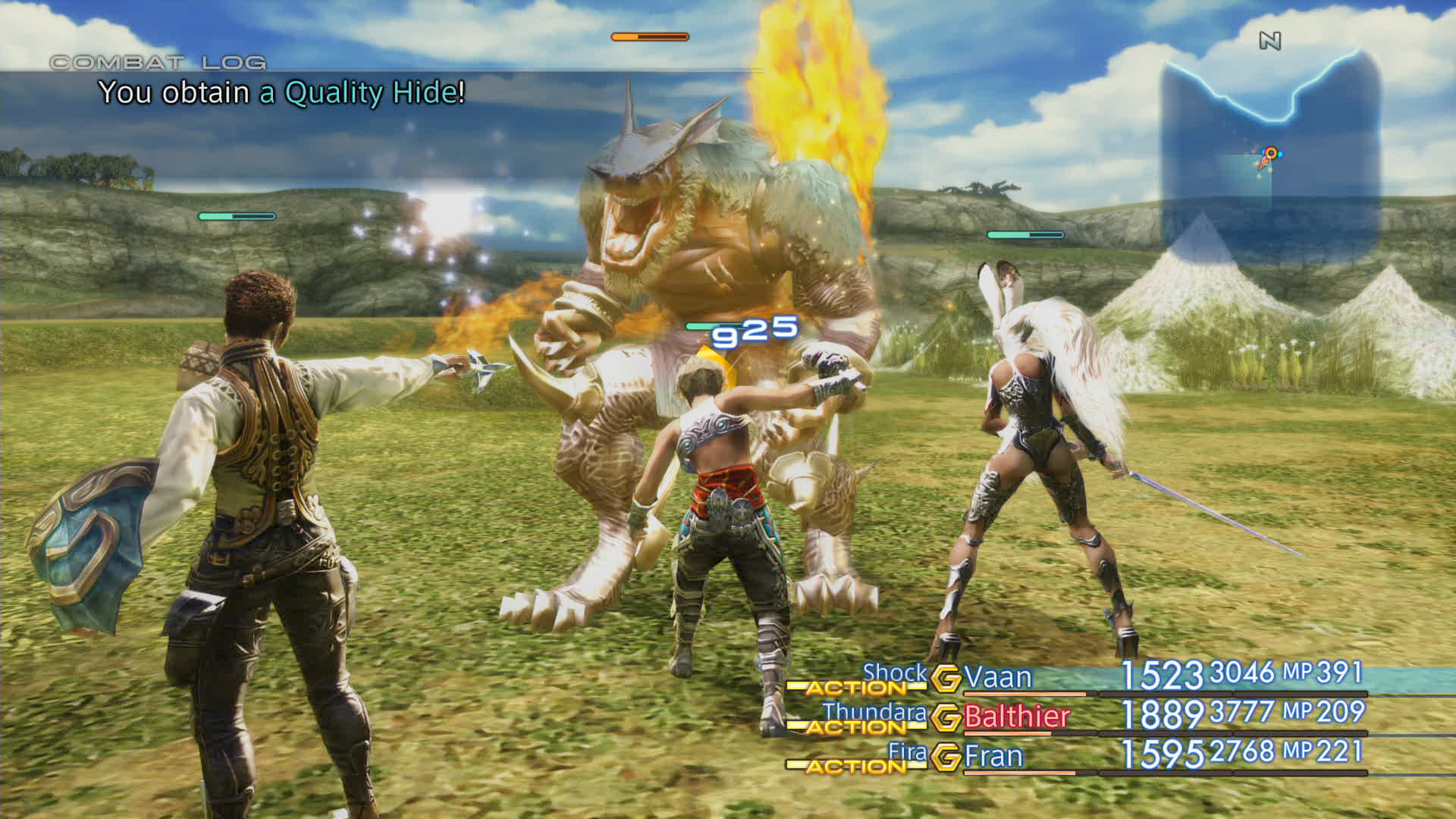
The Entertainment Software Rating Board has rated Final Fantasy XII as 'T' for Teen, with the official description noting that,
"This is a role-playing game in which players help resistance fighters free their country from Imperial rule. As players travel through a fantasy world, they interact with characters and engage in turn-based combat against enemy soldiers and creatures (e.g., skeletons, spirits, dragons). Players use swords, firearms, and magic spells to defeat enemies; battles are accompanied by battle cries, sword slashes, and light effects. Some sequences depict additional acts of violence: a character impaled in the chest with an arrow; a character stabbed in the chest with a knife. One scene depicts a corpse on a throne with a bloody stab wound. Some female characters wear outfits that reveal large amounts of cleavage and/or buttocks."
-
Extended Gameplay
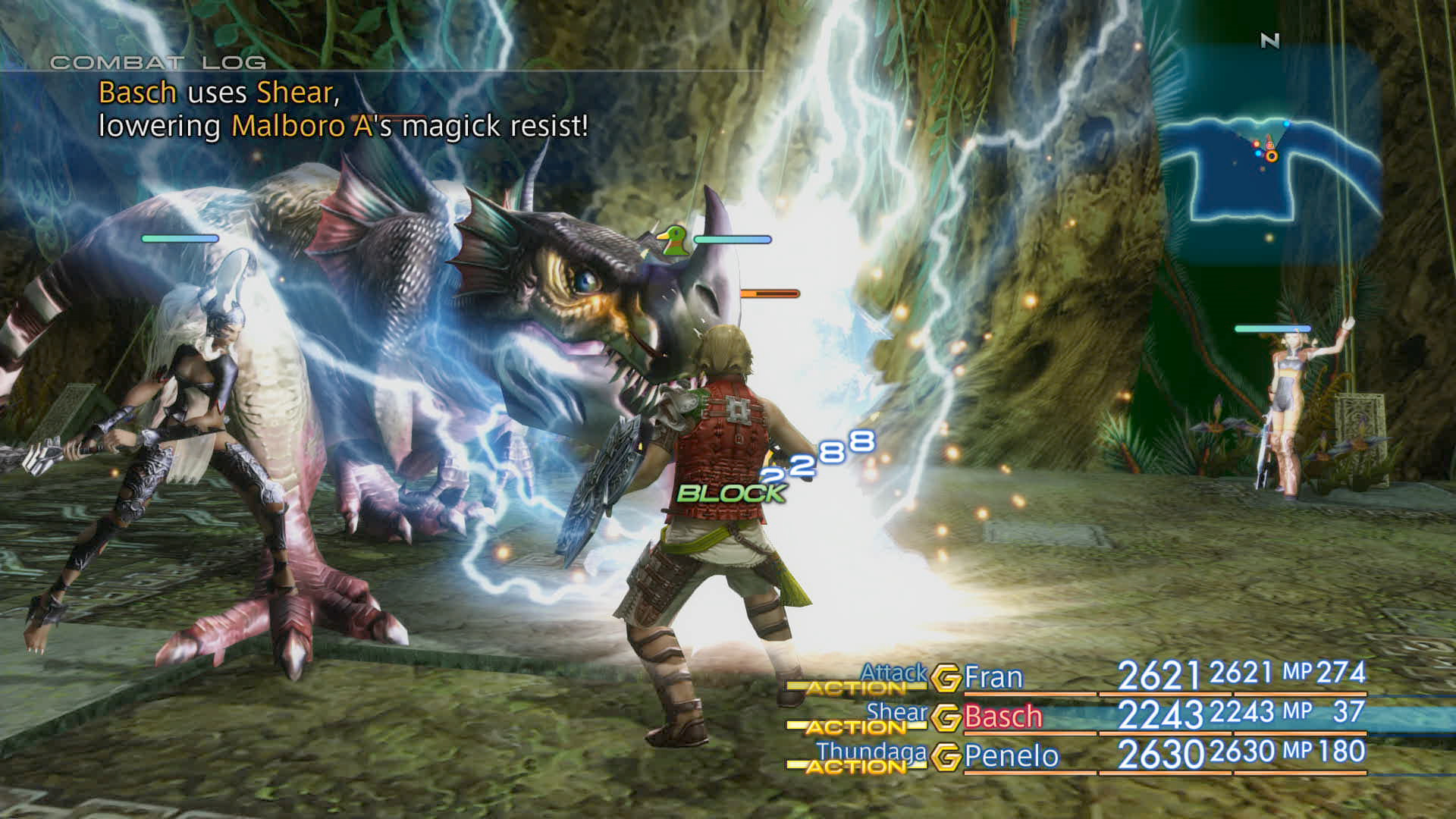
Curious to take a peek at FFXII HD in action? We've got you covered.
-
Overhauled Soundtrack
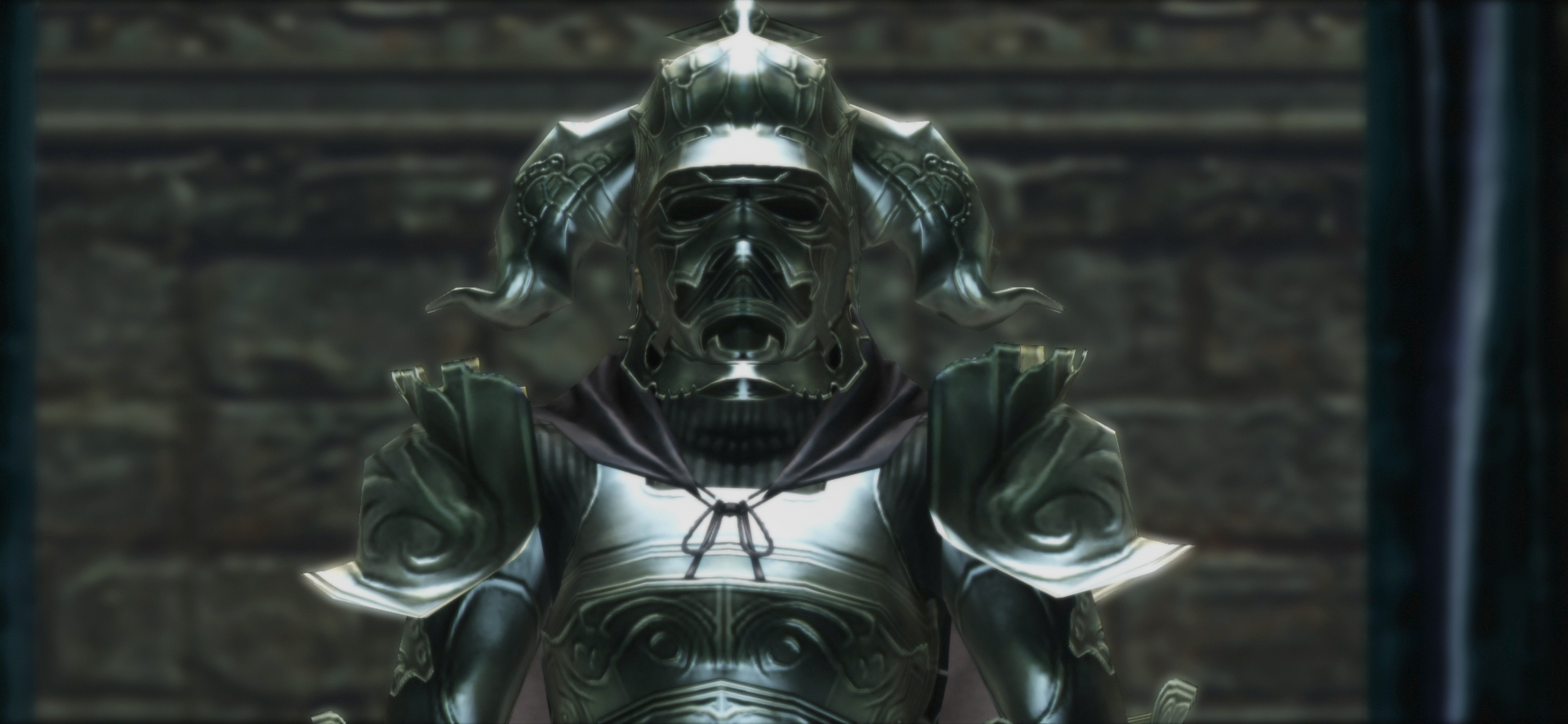
Lending players the ability to switch between old and new at a moment's notice, FFXII also scores brownie points for the way in which Square has tweaked the game's memorable score.
"Final Fantasy XII’s soundtrack features some of the most beloved songs in the series’ history, and this was a perfect opportunity to revisit its epic score. We’ve re-recorded FFXII’s background music using the current generation of sound production, now in true 7.1 surround. For the purists out there, you have the option to switch between the new and original versions of the score at any time."
-
One to Have on Your Radar
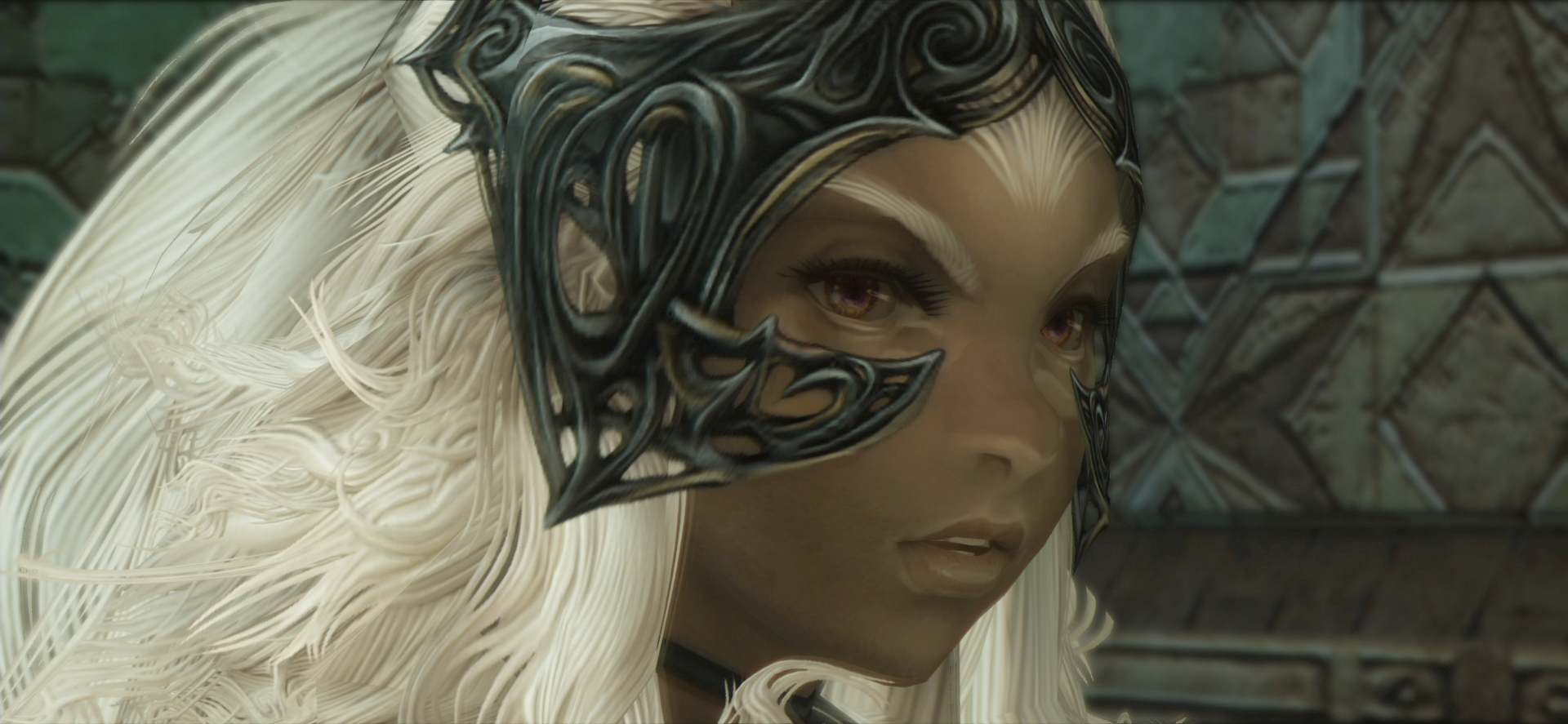
Final Fantasy XII: The Zodiac Age is another high-profile Japanese title in a year full of them.
-
Trophy List
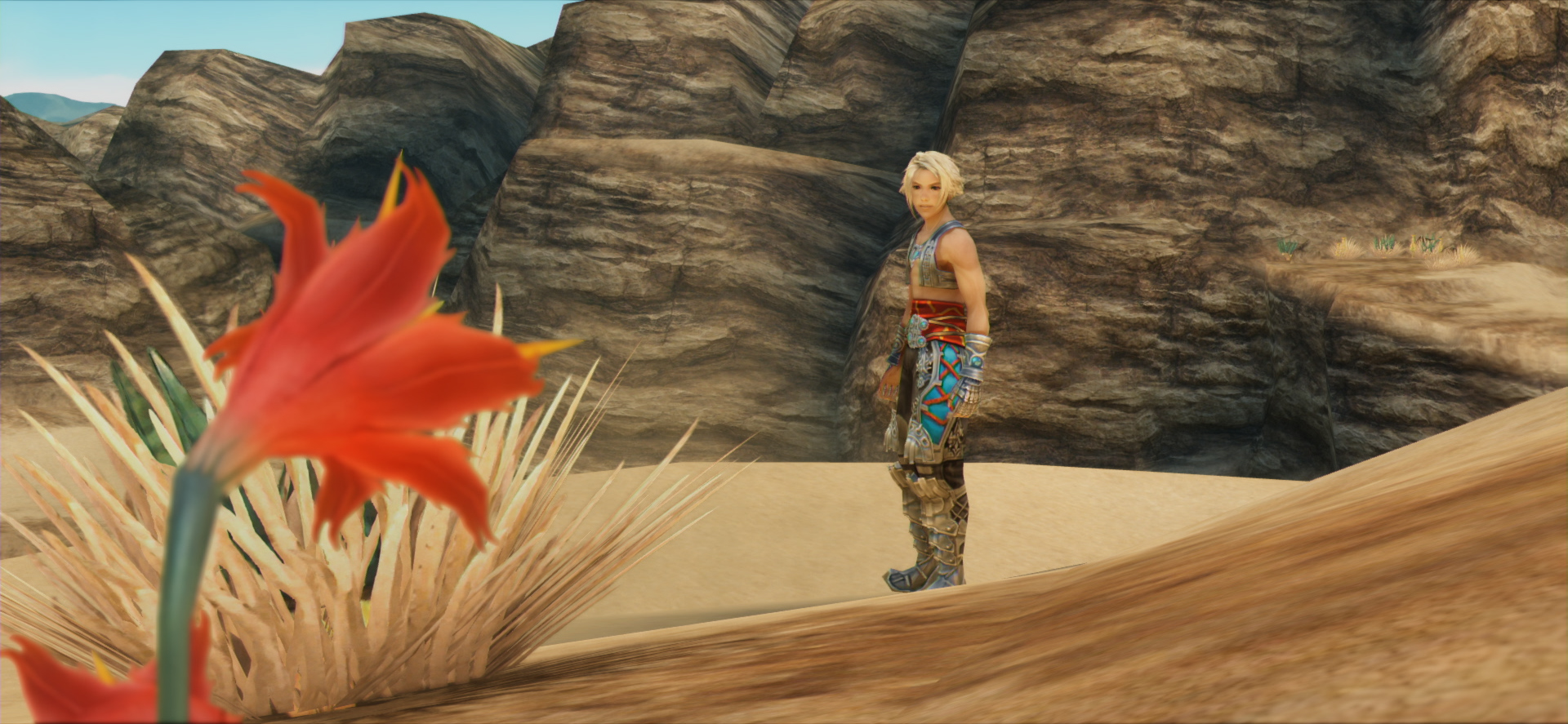
Comprised of 41 accolades in total — including that all-important Platinum — we should warn you that FFXII HD's Trophy list is riddled with potential spoilers.
-
Collector's Edition

Available exclusively through the Square Enix Store, the FFXII HD Collector's Edition will set you back $200.
It includes the following:
- The game
- Exclusive Judge Magisters Mini Bust Set, featuring busts of Judges Bergan, Drace, Gabranth, Ghis, and Zargabaath (Exclusive to Collector's Edition. Will not be sold separately.)
- Soundtrack featurning music from famed composer Hitoshi Sakimoto
- Steelbook featuring art exclusive to the Collector’s Edition
- Set of Six Art Cards, featuring Vaan, Ashe, Basch, Fran & Balthier, Penelo and World of Ivalice
- Digital code to access the original soundtrack as background music in-game
-
Steelbook Edition

If you don't have $200 spare, don't fret; the Steelbook Edition ($49.99) of FFXII HD is just as enticing, and includes:
"The FINAL FANTASY® XII THE ZODIAC AGE LIMITED EDITION includes the game, an exclusive steelbook featuring artwork by renowned illustrator Akihiko Yoshida, and a digital code to unlock the original soundtrack background music option in-game."
-
Our Final Verdict
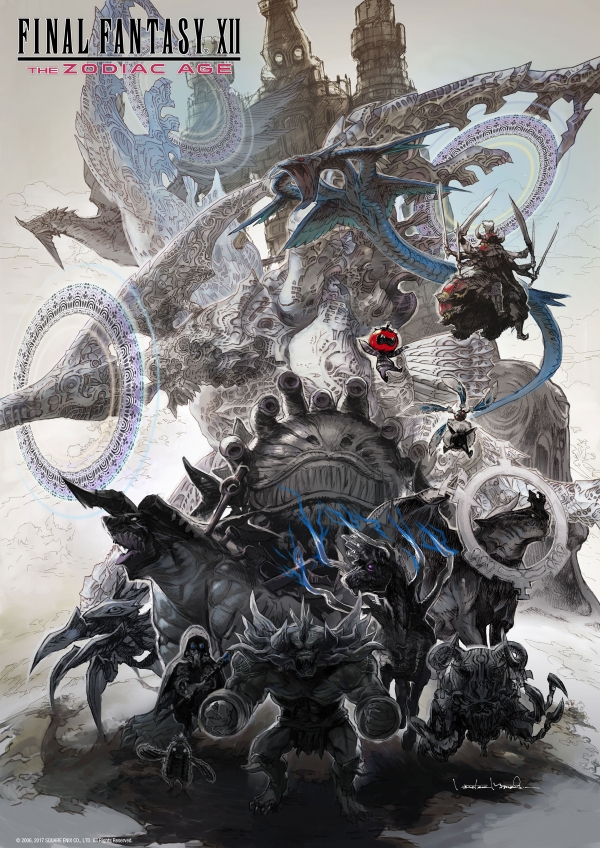
The review embargo for FFXII: The Zodiac Age is set to lift on Monday, July 10 at 5AM PT, at which time you'll be able to read Martin Patiño's review for PSLS.
